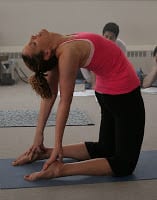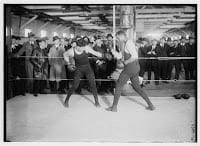
“Use your words.”

“Fear is excitement without breath.” Robert Heller

In a (rare) quiet moment last weekend, while the girls were otherwise occupied throwing rocks into the lake, I admitted to Bubba that I’m feeling a bit scattered, writing-wise. Following the Writer’s Boot Camp I took with Lisa Romeo in January, I was energized to work on my travel memoir. And then life crept in, slowly at the edges, and then more rapidly as water does when it finds a void, rushing to fill up every available space with carpools, after-school activities, and random, small writing projects.

The most hateful hate I have ever known erupts like lava from the volcano that is Eve. Accelerated by the steam of fear and frustration inside this eleven-year-old body it destroys all in its path indiscriminately. It is not about chores or homework or curfew, although that is the story. As her mother, I want to know what lies at the core, what is driving this fear and sadness.
The sneer of derision. She looks down on me for my ignorance, but beneath that is the stark terror that I might not “get it.” That it may be that nobody will ever understand how she feels.
I never imagined being the recipient of such anger. And I’m sure she feels justified, or if she doesn’t, she would never let on. And now I know that her bravado is surely false, its roots deep in fear and uncertainty and an overwhelming rush of emotion that is too much to contain. When I ask her to sit with this anger and fear and frustration, her body sheds kinetic energy – her feet stamp the ground like a wild stallion and she twists in her chair as if being wrung out to dry. Her teeth grind and she begs to be let go. This emotion is too much to bear. “Please let me go!” she screams.
It is all I can do to deflect the energy instead of letting it penetrate. This lovely, perfect creature, flesh arisen from mine, whose heart beats with a measure of my blood, is in such pain and to take it on would only destroy us both. My gift to her lies in attempting to shed this incredible energy and replace the void with love and light.
I wish it were easier.


Two years ago we moved out of the house for a few weeks while my brother-in-law ripped up all of the carpet on the main floor and replaced it with hardwoods. Two children under the age of ten, an 80-pound dog, one cat and two and a half acres had led me to the conclusion that clean-up would be a darn sight easier with hard surfaces. True, the dog hair sashayed in tumbleweeds across the wood floor to settle in the corners, but when the kids slopped chocolate milk over the sides of their cups or flung a handful of rice or pasta to the floor, spot-cleaning was a breeze.

I am. And my kids don’t even really listen to his music. But I’m pissed off for the kids that do. And their parents.

Camel terrifies me. The yoga pose, not the cleft-footed, cleft-mouthed desert beast.

Eve is a stubborn girl. Has been from the moment she was conceived, I’m certain. And yet, she is loathsome of conflict and confrontation. As a toddler, she didn’t like to be touched or hugged by those other two-year-olds who long for physical contact. You know – the ones who hug every other kid they see? Eve hated that and would often see them coming a mile away and make her way to me as fast as her chubby, drunken little legs could carry her to hide behind my legs in fear. She had one friend in particular – her dearest, most cherished friend – who was very physical. And from time to time, as kids of that age are prone to, they would both covet the same toy. Miss Flower would see Eve playing with something she wanted and head on over. Eve, anticipating the conflict, would close her eyes, stretch her arm out in Miss Flower’s direction and turn her head away in mute acceptance. You want what I’ve got and it’s just not worth it to me to fight for it. Here, take it.
![]()
Thanks for visiting my site. I’m driven by the exploration of human connection and how we can better reconnect to ourselves, our families, and our communities. Aside from my books, I hope you’ll check out my blog, and some of my other writing to find more perspectives and tools.


